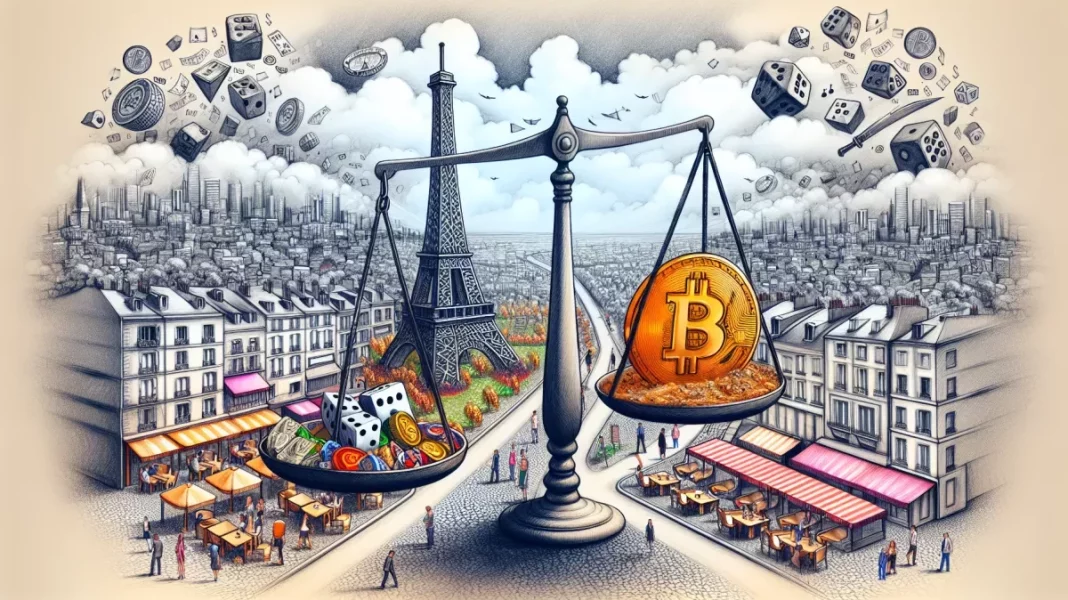As one of the most popular online currencies, Bitcoin – which has the unique ability to offer anonymous transactions – has seen increasing usage in the online gambling corner. France, renowned for its defined and explicit regulatory landscape, has emerged as one of the countries offering a conducive environment for Bitcoin and online gambling. Let’s explore how the climate has evolved over recent years, what it currently looks like, and where it’s headed.
France has long been known for its strict, yet fairly structured, regulatory landscape for gambling. However, the advent of cryptocurrencies like Bitcoin has brought a fresh perspective for stakeholders, lawmakers, and online gaming enthusiasts. In retrospect, though, some might argue that France was slow to catch onto the Bitcoin revolution. This can somewhat be attributed to a lack of clarity in rules, vigilance about possible misuse for foul play, and concerns relating to taxation and criminal activity.
A major turning point in France’s relationship with Bitcoin came in 2014. Benoît Hamon, the French Minister of Consumer Affairs, introduced Circular No. 2014/117 pertaining to the Value Added Tax (VAT) treatment for Bitcoin. Essentially, the circular clarified that Bitcoin transactions were not subject to VAT, marking an important episode in the evolution of France’s stance on digital currencies.
But what does this mean for the online gambling industry?
The regulatory landscape for online gambling in France formed in 2010 when the French regulating authority ARJEL (Regulatory Authority for Online Games) was setup. Though poker, sports, and horse race betting are legal online practices, casino games like slot machines and roulette are not. This is to curb excessive gambling addiction. However, conspicuously absent from legislation at the time were any explicit restrictions or regulations on Bitcoin gambling.
Perhaps, the real game-changer was when Bitcoin was adopted as foreign currency by the French High Court in 2011, thereby eliminating the chance of double taxation and permitting online transactions. Asking French users to class their Bitcoin as foreign currencies made a significant difference, as it essentially allowed Bitcoin to function like any regular currency in an online gambling environment.
As adoption of cryptocurrencies continues to surge, France has shown adaptability. More recently, the government has taken proactive measures, like officially recognizing digital assets as legally equivalent to money in 2020. La Banque de France, the nation’s central bank, is even testing its central bank digital currency (CBDC), asserting a more ambitious approach towards embracing digital currencies.
While the legal status of online Bitcoin gambling is largely a grey area in the majority of jurisdictions worldwide, what has transpired in France lately has been promising.
For instance, Il Mito, an Italian restaurant in Paris, announced that it would start accepting Bitcoin as payment. Furthermore, retail giant Carrefour, initiated a blockchain project to trace the production of its products. Such instances have only reassured citizens about the allotment and advantageous nature of cryptocurrencies.
As it stands, the regulation for Bitcoin gambling in France seems to be proactively adapting, and it appears that ARJEL is keen to retain control, permitting gambling only with sites they have approved.
Will we see ARJEL-approved Bitcoin gambling websites in the future?
While the answer remains uncertain, one cannot undermine that the rules of the game are changing. What France’s regulatory landscape brings for Bitcoin and other cryptocurrencies, in the sphere of online gambling and beyond, is undoubtedly amongst the most fascinating narratives to follow.
A disclaimer to this analysis is that while France’s overall stand toward Bitcoin and online gambling has evolved significantly, the space is yet met with continuous reforms, rules, and debates. Hence, patrons are urged to proceed with gambling activities albeit with caution, always adhering to the relevant legal guidelines and norms.
Overall, France is undoubtedly developing an exciting foundation for Bitcoin use, including its combination with online gambling. As these developments continue to unfold, bitcoingambling.org promises to keep you updated with relevant news, insights, and trends.
Sources
1. The Bitcoin Economy, in Perspective – Straits Times
2. French Online Gambling Law – Gaming Law
3. Acceptance of online betting in France – BFM TV
4. Il Mito starts accepting Bitcoin – Coin Desk
5. Carrefour’s Blockchain Project – Coin Telegraph
6. French central bank experiments with Digital Euro – Reuters.



